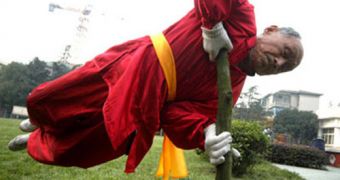The results of a four-year-long study show that children of centenarians are far less likely to develop diabetes or heart conditions than their peers. And we use children metaphorically, as the test subjects for the study were, on average, 72-year-old when they signed up. The team behind the new discovery, made up of scientists at Boston University and the Boston Medical Center, studied the cases of some 600 old adults in the United States.
"These findings reinforce the notion that there may be physiological reasons that longevity runs in families and that centenarian offspring are more likely to age in better cardiovascular health and with a lower mortality than their peers," said Emily R. Adams, the leader of the research team. She went on to say that "The current findings suggest that centenarian offspring are following in their parent's footsteps, avoiding some of the vascular morbidities afflicting their peers and, more importantly, being less likely to die over time".
During the survey, the health conditions of some 440 people who had at least one parent over 100 years of age, and 192 men and women whose parents only reached the average life expectancy, were followed over four years, and the risks of them developing various diseases, including diabetes and cardiovascular afflictions, recorded.
The team found that centenarians' children were approximately 81 percent less likely to die due to old age than their peers in the control group. Heart conditions occurred in the main group in only a small percentage, of 0.7, whereas men and women in the control group exhibited a 3.5 percent chance of suffering such conditions.
The research, published in the November 2008 issue of the Journal of the American Geriatrics Society, concluded that genetic factors must be at work in these situations, which would explain why those who had a centenarian parent are very likely to pass the 100 year mark themselves. Further studying this field could yield significant medical breakthroughs, as a vaccine carrying the anti-old age gene might increase the average American lifespan by at least two decades.

 14 DAY TRIAL //
14 DAY TRIAL //